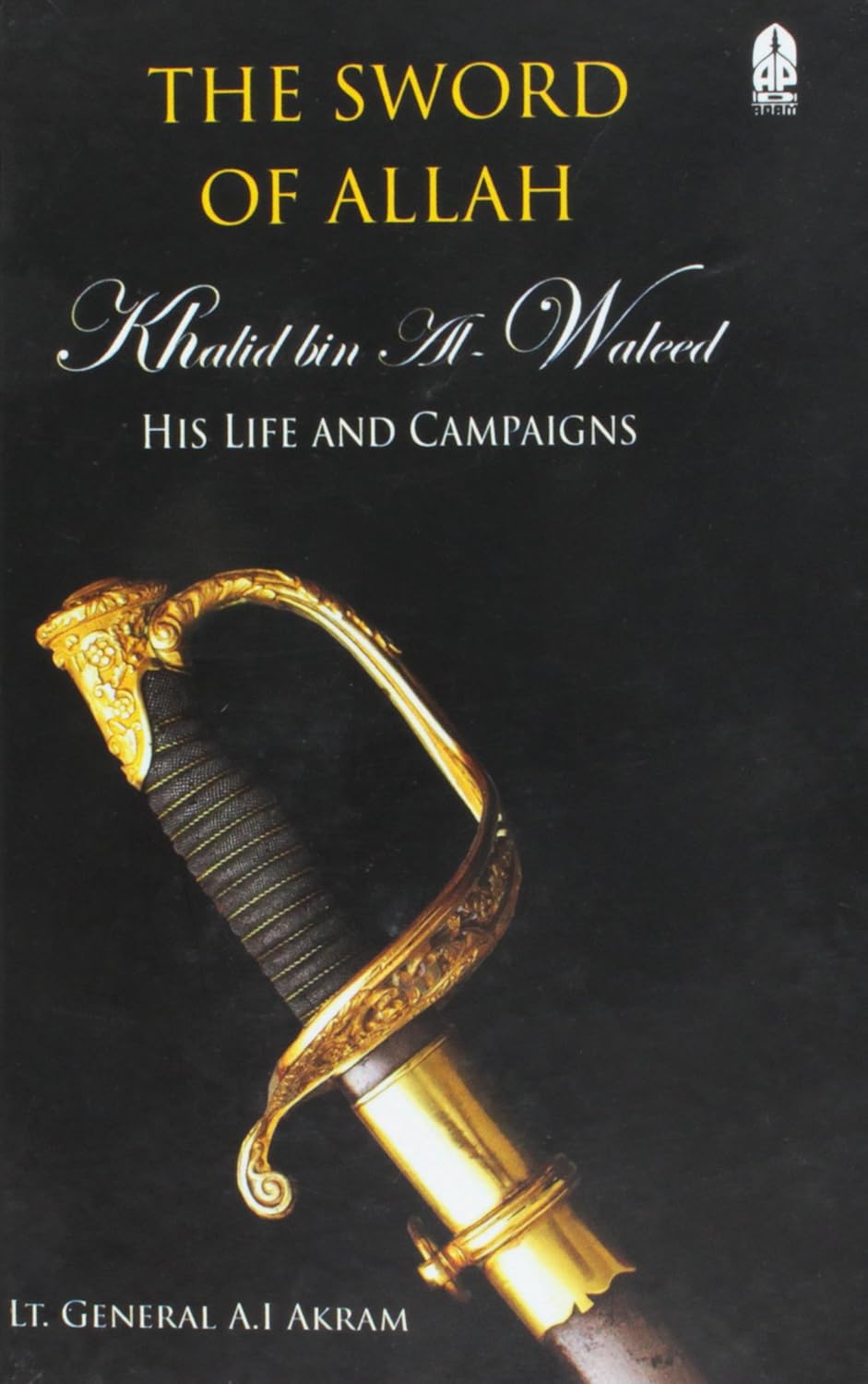About this deal
Agha, Ibrahim Akram (1977). The Muslim Conquest of Egypt and North Africa. Pakistan: Ferozsons Ltd,Pakistan. ISBN 978-969-0-00224-2. It was narrated from Jaabir that the Prophet (peace and blessings of Allaah be upon him) commanded ‘Umar ibn al-Khattaab (may Allaah be pleased with him), at the time of the conquest when he was in al-Bat-ha’, to go to the Ka’bah and erase every image that was inside it, and the Prophet (peace and blessings of Allaah be upon him) did not enter it until it had been rid of every image that was inside it. Early military career Opposition to Muhammad Map showing troop placements and maneuvers of the Battle of Uhud, where Khalid and his horsemen routed a Muslim force led by the Islamic prophet Muhammad in 625 This burdah was in the keeping of the caliphs who passed it down to one another and wore it on their shoulders in processions, both walking and riding. It was being worn by al-Muqtadir when he was killed and was stained with blood. I think that it was lost during the turmoil caused by the Tatars. Inna Lillaahi wa inna ilayhi raaji’oon (verily we belong to Allaah and unto Him is our return).
Khalid ibn Al-Waleed | Islamic History
A good deal of what appears in this book is not generally known to the public; but every incident, every circumstance is historically correct. Every move, every duel, every blow, every quoted statement is taken from the accounts of the early historians. In the interpretation of the facts, I have at times had to rely on judgment, particularly with regard to the description of the battles; but I have tried to be as objective as possible. In my account of the battles and my description of the events which occurred in those early, fateful years of Islam, I have given credit to the enemies of Islam when they deserved it (and this was often); and I have pointed out the mistakes of the Muslims (though these were few). By A.I. AkramHe taught military history as Colonel and Chief Instructor at Command and Staff College, Quetta from September 1960 to November 1965, [5] Agha, Ibrahim Akram. The Muslim Conquest of Spain. Pakistan: Oxford University Press, Pakistan. p.265. ISBN 978-0-19-597715-8.
Ramadan profiles: Khalid ibn al-Walid, the fearless warrior Ramadan profiles: Khalid ibn al-Walid, the fearless warrior
He is generally considered by historians to be one of the most seasoned and accomplished generals of the early Islamic era, and he is likewise commemorated throughout the Arab world. Islamic tradition credits Khalid for his battlefield tactics and effective leadership of the early Muslim conquests, but also accuses him of illicitly executing Arab tribesmen who had accepted Islam—namely members of the Banu Jadhima during the lifetime of Muhammad, and Malik ibn Nuwayra during the Ridda Wars—and being responsible for moral and fiscal misconduct in the Levant. Khalid's military fame disturbed some of the pious early Muslims, most notably Umar, who feared it could develop into a personality cult. The Byzantine army set up camp at the Ruqqad tributary west of the Muslims' positions at Jabiya. [137] Khalid consequently withdrew, taking up position north of the Yarmouk River, [139] close to where the Ruqqad meets the Yarmouk. [140] The area spanned high hilltops, water sources, critical routes connecting Damascus to the Galilee and historic pastures of the Ghassanids. [140] For over a month, the Muslims held the strategic high ground between Adhri'at (modern Daraa) and their camp near Dayr Ayyub and bested the Byzantines in a skirmish outside Jabiya on 23 July 636. [135] Jandora asserts that the Byzantines' Christian Arab and Armenian auxiliaries deserted or defected, but that the Byzantine force remained "formidable", consisting of a vanguard of heavy cavalry and a rear guard of infantrymen when they approached the Muslim defensive lines. [141] Illustration of the Battle of Yarmouk by an anonymous Catalan illustrator ( c. 1310–1325).As a horseman of the Quraysh's aristocratic Banu Makhzum clan, which ardently opposed Muhammad, Khalid played an instrumental role in defeating Muhammad and his followers during the Battle of Uhud in 625. In 627 or 629, he converted to Islam in the presence of Muhammad, who inducted him as an official military commander among the Muslims and gave him the title of Sayf Allah ( lit. 'Sword of God'). During the Battle of Mu'ta, Khalid coordinated the safe withdrawal of Muslim troops against the Byzantines. He also led the Bedouins under the Muslim army during the Muslim conquest of Mecca in 629–630 and the Battle of Hunayn in 630. After Muhammad's death, Khalid was appointed to Najd and al-Yamama with the purpose of suppressing or subjugating Arab tribes who were opposed to the nascent Muslim state; this campaign culminated in Khalid's victory over Arab rebel leaders Tulayha and Musaylima at the Battle of Buzakha in 632 and the Battle of Yamama in 633, respectively. Shoufani, Elias; Shufani, Ilyas; Shūfānī, Ilyās; Publishing, Arab Institute for Research and (1973). Al-Riddah and the Muslim Conquest of Arabia. University of Toronto Press. ISBN 978-0-8020-1915-8. Mulder, Stephennie (2014). "Seeing the Light: Enacting the Divine at Three Medieval Syrian Shrines". In Roxburgh, David J. (ed.). Envisioning Islamic Art and Architecture: Essays in Honor of Renata Holod. Leiden and Boston: Brill. pp.88–108. ISBN 978-90-04-26402-1.
 Great Deal
Great Deal 